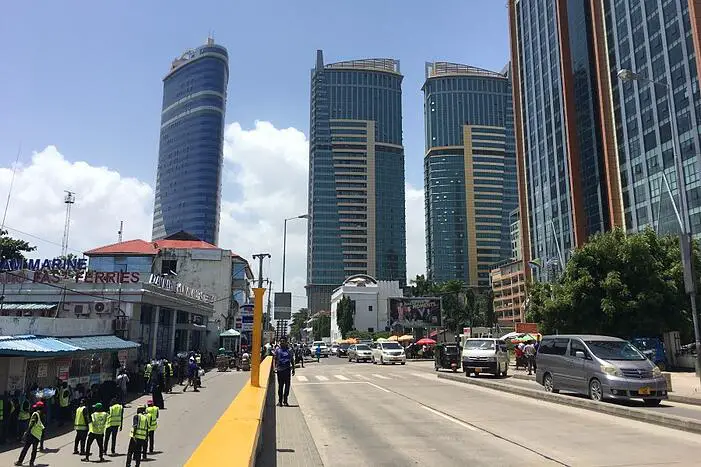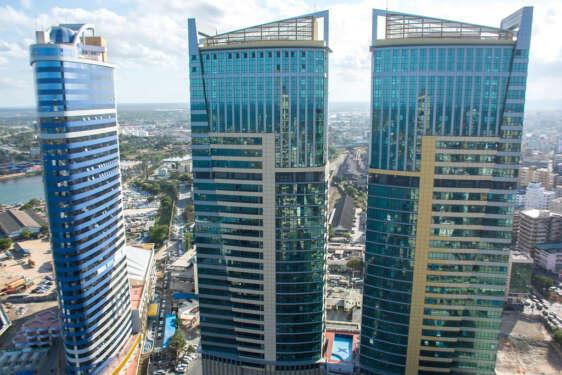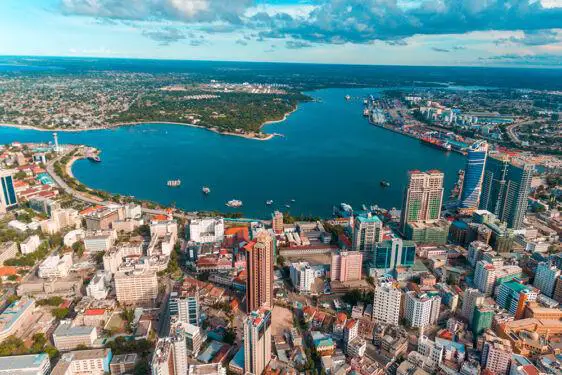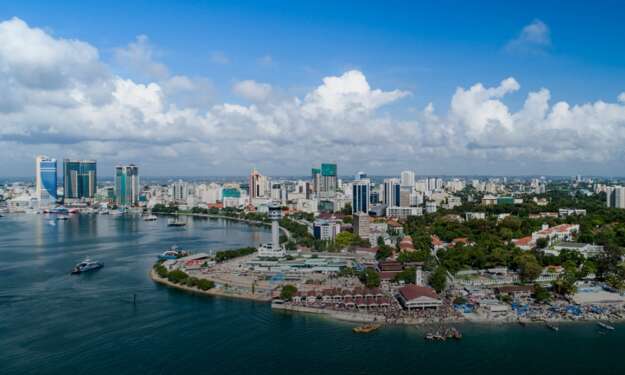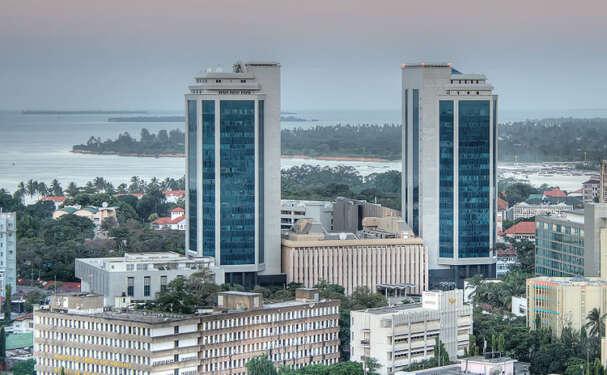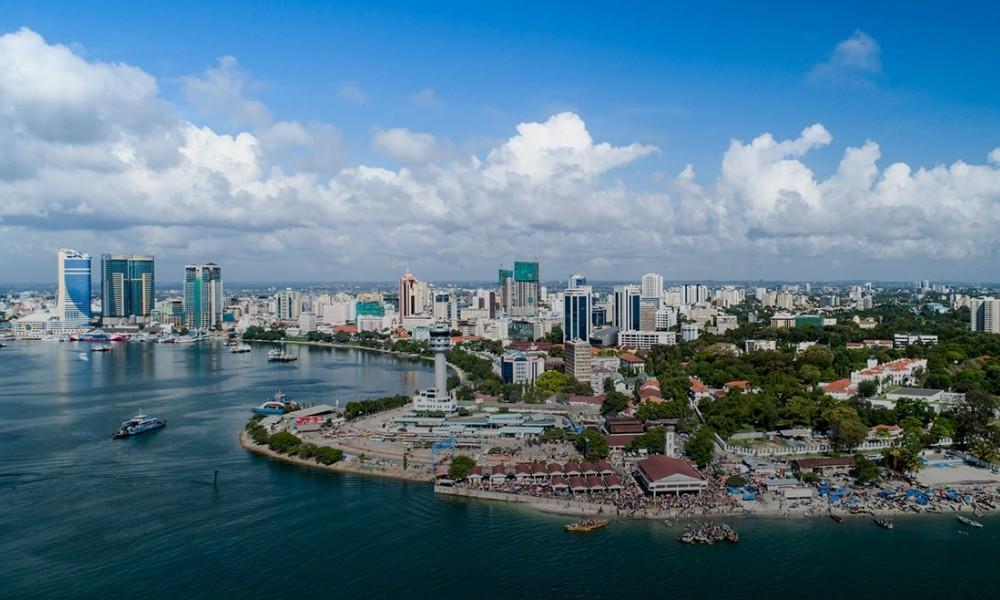- Africa’s new dawn: the rising role of digital and AI in agriculture
- Can Dangote Refinery Transform Africa Energy Ambition
- Gallup Survey: 80 per cent of Kenyan Workers Are Disengaged and Seek New Opportunities
- Madagascar Man Freed from 5KG Tumor After 15-Year Struggle
- How women in Africa are perceived and treated
- Sugar consumption in Kenya to Increase to 1.23 Million Tonnes
- Can Somalia and Turkey Oil deal Bring Change in Somaliland
- Remittances to Kenya dropped to $371.6 million in June, marking a six month low
Browsing: Tanzania economy
The central bank of Tanzania (BoT) has painted the state of the economy on a different canvas.
BoT’s economic bulletin for the quarter ending June 2021 and the monthly economic review for July 2021 indicates Tanzania has been on a very promising trajectory for the past two years, shown by its dedication towards building a resilient industrial economy and self-reliance through steady ownership and control of natural wealth.
According to the BoT, in the quarter ending March 2021, the economy grew by 4.9 per cent compared with 5.9 per cent in the corresponding quarter in 2020 and four sectors were noted to have contributed greatly, namely construction, transport, agriculture and storage.
Former hotbed sectors and speedy forex contributors such as accommodation and restaurants were gravely impacted by the pandemic, slapping a -1.7 per cent performance for 2021.
By the end of March 2021, the growth and expansion of telecom in …
Tanzania, one of the fast-growing economies across the African continent ascended to a low-middle income country status (LMIC) in 2020, amid COVID-19 pandemic shocks.
The achievements of the East African nation of more than 59 million people have been recognized across the world, with the World Bank (WB) taking note of the country’s success and throwing more than congrats to the table.
Amid uncertainties brought by the pandemic, threatening the livelihood of communities and the sustenance of investments, the central bank of Tanzania forecast the economy to grow by 5.7 per cent in 2021, fueled by public investment and normalization of global trade and investment.
Under the new administration guided by the sixth president, Samia Suluhu Hassan, Tanzania has already set its priorities and highlighted some of the key investment deals on the table, including the $3.5 billion East Africa Crude Oil Pipeline (EACOP) and the Tanzania-Kenya $1 billion gas …
The Central Bank of Tanzania (BOT) published the monthly economic review on June 2, 2021, highlighting key economic performance in the country’s different sectors.
Tanzania’s key economic sectors such as exports and imports showed modest performance while inflation remained in tolerable benchmarks.
The East African nation is one of the fastest-growing economies in Africa and it has been on a trajectory to enhance its economy, including advancing to a lower mid-income level, amid uncertainties caused by the global pandemic.
Read: Report Insight: Central bank shows good prospects on Tanzania economy
Various forecasts by different entities including the World Bank (WB) project that Tanzania’s GDP will grow by 4.5 per cent in 2021. However, the global recovery period dictates the fate of its economy.
Inflation
According to the report, headline inflation continues to be within the country and regional benchmarks in May 2021.
“Twelve-month headline inflation remained at 3.3 per cent …
The central bank of Tanzania released the monthly economic review for May 2021 and it has reviewed different sections of the economy with a keen eye.
READ:Tanzania clock’s $3Bn as gold prices soar
Inflation
In this section of the economy, the report showed that, during April 2021, the headline inflation rate remained low and within the country and regional limits.
“Twelve-month headline inflation was 3.3 per cent in April 2021, almost the same as in the preceding month and the corresponding period of 2020,” the report noted.
However, on a month-to-month basis, headline inflation stood at 0.5 per cent, which is a bit higher than the rate registered in the corresponding period of 2020 inflation is projected “to remain within the targeted band for 2020/21”.
Further, the core inflation showed that the index accounts for the largest share in consumer price index (CPI) stood at 3.5 per cent, which …
Tanzania economy is projected to grow at 5.6 per cent, the central bank of Tanzania (BoT) revealed during its May 28, 2021, Monetary Policy Committee (MPC).
As Tanzania ascend towards marking a year since upgraded to a low-middle-income country, it has been taking serious steps to revamp its economy, by reshuffling its investment and trading operations.
Unlike 2020 whereas the entire world was battling COVID-19 this year the MPC noted that it was “pleased with good performance of the economy, which is amid global spillover of the adverse impact of the pandemic. Growth is estimated at 4.8 per cent in 2020, lower than the projection of 5.5 per cent, reflecting the adverse impact of the pandemic”
Further, the committee noted that the economy in 2021 will be reinforced by several sectors particularly construction, agriculture and transport and communications activities.
These projects are rather quite far from the African Development Bank …
The central bank of Tanzania (BoT) releases the April 2021 monthly economic review and it depicted the economy to fair rather moderately amid the waves of COVID-19 recovery globally.
At the moment, Tanzania economy is projected to grow by 5.7 per cent this year, propelled by public investment and normalization of global trade and investment, according to BoT.
Inflation
According to the report, inflation remained low and within the benchmarks set forth at both the national regional levels.
“Year-on-year headline inflation eased to 3.2 per cent in March 2021 from 3.3 per cent in the preceding month and 3.4 per cent in the corresponding period in 2020, driven mainly by the slowdown in prices of rentals paid by tenants, gas, charcoal, firewood, and transportation cost,” the central bank report said.
Further on the line, on a month-to-month basis, headline inflation stabilized at 0.9 per cent in March 2021 as in …
The central bank of Tanzania (BoT) released a monthly economic review report this week the report depicted the performance of different sectors of the economy.
Inflation
Tanzania has been maintaining its inflation rate over the past month in 2021. According to this monthly report, inflation has continued to remain down, evolving within the country and regional targets.
The report argued that the twelve-month consumer price index (CPI) headline inflation eased to 3.3 per cent from 3.5 per cent in the previous month, which is rather widely driven by the slowdown in prices of non-food consumer goods and services.
“On a month-to-month basis, headline inflation was 0.9 per cent in February 2021, compared with 0.8 per cent in the preceding month. Inflation is projected to remain within the target range of 3-5 per cent for the remaining period of 2020/21,” the BoT report noted.
Within the same context, the report pointed …
Despite the global economic shocks caused by covid-19, in July 2020 the World Bank Group (WB), Tanzania’s development partner categorized Tanzania as a lower middle-income country—which was one of the crucial country milestones achieved over the past year.
Tanzania which is currently eyed to be one of the best performers in the region, despite the pandemic shocks, economy forecasters such as Focus Economics anticipated the East African economy to grow by 5.8 per cent.
However, the WB latest Tanzania economic update proposed several key issues to be prioritized by Tanzania to keep a tight grip on the economic status and ascend further.
Tanzania is currently striving to realize its Development Vision (TDV) 2025 further, by having institutional framework changes on crucial sectors—on the mining sector, taxing, investment and transforming Tanzania into a strategic powerhouse by utilizing its natural gas.
The bank’s Raising the Bar: Achieving Tanzania’s Development Vision, exposed various …
The central bank of Tanzania (BoT) published its quarterly economic bulletin on Monday 8 February 2021 for the quarter ending December 2020, and it portrays rather satisfactory performance despite the coronavirus (COVID-19) shocks affecting the global economy.
The report pointed that, in the third quarter, the growth was at 4.5 per cent, leading to the average growth rate of 4.7 per cent in the first three quarters of 2020, compared to 7.3 per cent in the corresponding period in 2019 and 6.9 per cent in 2018.
According to the report, the satisfactory growth was rather contributed by various sectors particularly, construction, agriculture, transport and mining and quarrying.
The government of Tanzania did provide strategic measures to cushion the economy from the virus shocks, this included a deliberate decision of ruling out mandatory lockdowns.
Gross Domestic Product
The performance of the economy was driven by rather four sectors, construction, agriculture, transport, …
Tanzania, one of Africa’s fastest-growing economy has taken a deliberate step to increase its 2021/22 financial year budget by 4 per cent to accelerate economic growth.
According to the Tanzanian Legal and Constitutional Affairs minister, Dr Mwigulu Nchemba, standing on behalf of the Finance and Planning Minister in Parliament yesterday, cited the increase to be attributed by several issues including an amplified requirement by the consolidate fund(The Citizen)
“This includes [money required for] repayment of government debt; money required to cater for promotions of public servants and new jobs [in the public service],” he said.
According to information from The Citizen, this increment comes as the East African nation prep for its third five-year development blueprint.
Tanzania—which was categorized by the World Bank, as a low middle-income country on July 2020, will raise its budget from around $14.6 billion allocated in 2020/2021 financial year to around $15.5 billion, which is …





